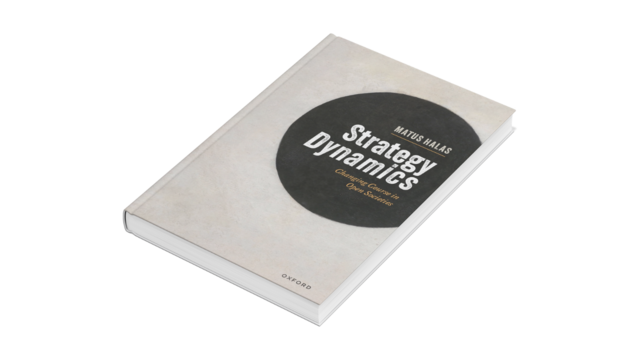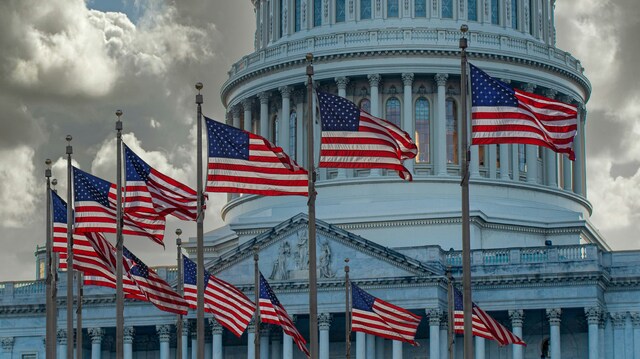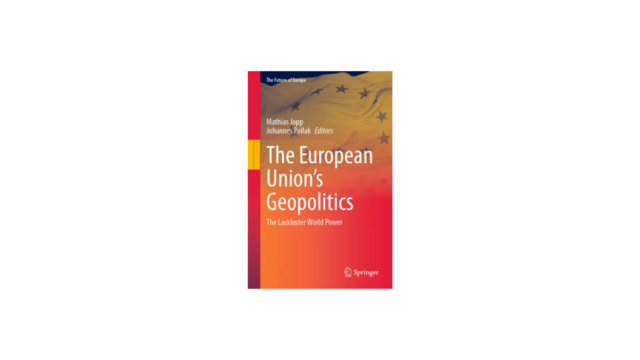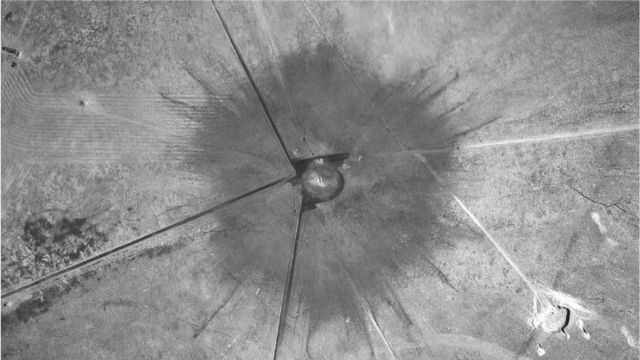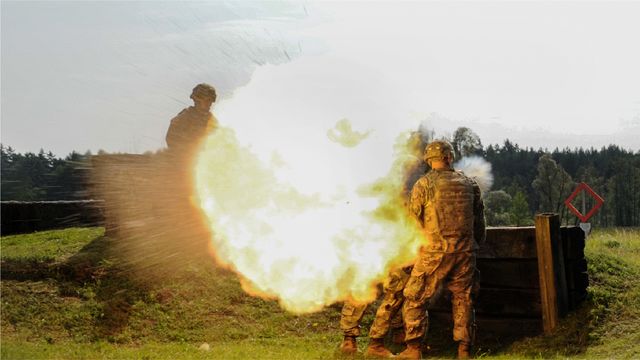The Nuclear Arms Control and Disarmament Waiting
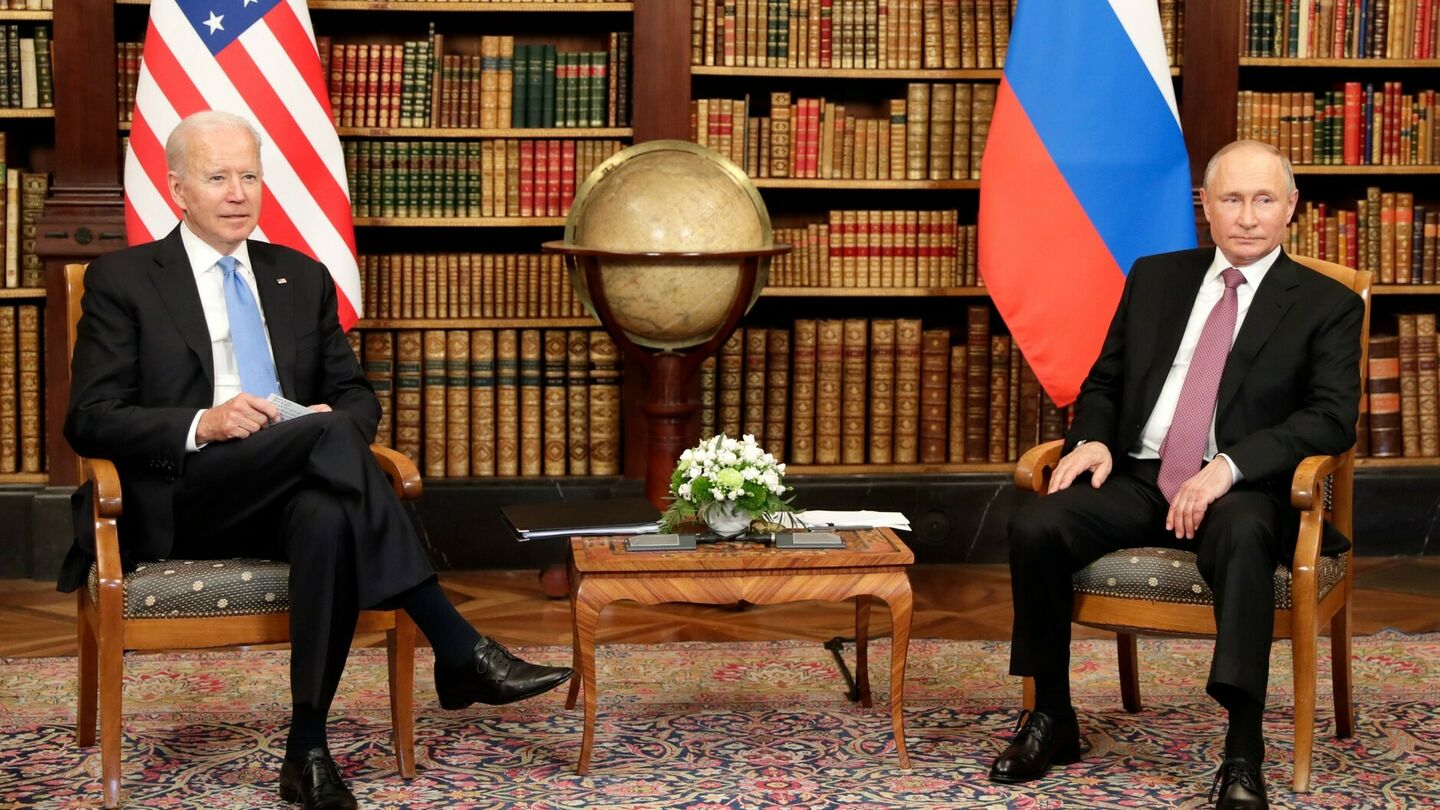
The reflection deals with the current state of the nuclear arms control and disarmament process with a stressing on the role of the Biden administrationʼs security policy. The policy follows the Interim National Security Strategic Guidance (INSSG) of March 2021 till the summaries of the new relevant security documents, i.e. the National Defense Strategy (NDS) and the Nuclear Posture Review (NPR), will be published early next year.
The reflection deals also with the US-Russia strategic dialogue, the current development in the effort to reach the Korean Peninsulaʼs denuclearization and the restoration of the US participation in the so-called
Iranian nuclear deal (JCPOA). The final part of the reflection pays attention to some of the main factors of the USʼs internal and international policy that could influence the implementation of the declared intentions of the above mentioned security documents.
Possible Deliberations of the US Relevant Security Documents
The main priorities of the interim security guidance INSSG, which deals with nuclear weapons, will probably be the most basic part of the new security documents as well. Their wording will undoubtedly reflect the increasing deepening of the US-China rivalry and the RFʼs global ambitions. The mentioned geopolitical rivalry takes place in the shadow of the climate change threat and the severe consequences for the world economic and social development of the coronavirus pandemic. The Biden administrationʼs deliberation on the restoring of the leading role of the US in both the world and international organizations may be a starting point as well. The priority of the use of the diplomacy with an emphasising on the necessity to support democracy and the strengthening of human rights, should be the main guiding and motivating features in this effort.
Nuclear weapons will probably once again be labelled in the documents as an existential threat for the entire world which the administration will be preoccupied within its effort to restore the credibility of the USʼs leading role in the arms control process. This is connected with the intention to arrange a constructive dialogue with Russia and China on the development of military technology with an impact on strategic stability, and also with the intention to solve the problem of the Iranian nuclear program and that of the Korean Peninsulaʼs denuclearization as well. In the framework of the declared intention to avoid an excessive arms race it cannot be ruled out that the acceptance of some steps will be taken toward the diminishing the role of the nuclear weapons in the National Security Strategy but with the assumption that a secure and effective strategic deterred arsenal will be kept. There is an expectation that the US will confirm the credibility of its obligation to its allies related to the preservation of its extended deterrence. In relation to the terrorist threat, attention will be also paid to its efforts to secure fissile and radiological materials all over the world.
Daryl G. Kimball, the executive director of the prestigious US nongovernmental organization called the Arms Control Association (ACA), in his article “Bidenʼs NPR Must Reduce the Role of Nuclear Weapons” from October 2021, pointed out three key areas where the change from Trump administrationʼs policy would be suitable, among other things. In the first place, he argues that it should be established that the sole purpose of deterrence and a potential retaliation in case of a nuclear attack, should be defense against nuclear
attack. The possibility of the use of nuclear weapons in a preemptive strike or in response to a nonnuclear attack on the United States or its allies would be ruled out. It could strengthen the strategic stability and reduce the risk of nuclear war, in his opinion.
The second change should cover the revision and reevaluation of allegedly outdated targeting requirements, that are used to determine how many nuclear weapons there should be. In connection with this, Kimball argues that in spite of Russiaʼs modernization of its nuclear arsenal, which, as a result is in parity with that of the US, and Chinaʼs rapidly increasing its smaller number of its nuclear strategic force, the current U.S. nuclear arsenal vastly exceeds the amount that is necessary for an effective nuclear deterrence. (Remark:
according to the 2021 SIPRI Yearbook the US possessed as of January 2021 about 1800 operationally deployed nuclear warheads and the RF has 1625 nuclear warheads of this type. As regards China it is only reported that it has about 350 nuclear warheads that are currently in warehouses or ready for dismantlement, but without any clarification of their operational status. In 2021 the association of nongovernmental organizations ICAN, the Nobel Peace Prize laureate of 2017, published report titled “2020 Global Nuclear Weapons Spending". We can read there, among other things, that in 2020 the nine nuclear-armed states spent 72.6 bln USD on nuclear weapons, of which the US accounted for 37.4 bln USD, China 10.1 bln USD and the RF 8 bln USD.)
The third recommended change is to revise and reevaluate options for reducing the range of nuclear modernization in accordance with Bidenʼs declaration in his presidential campaign of his “no new nuclear weapons” policy. According to Kimball it deals mainly with the weapon systems whose operational deployment in a crisis situation could lead to a miscalculation of the US intentions on the part of its adversaries and thus to a lowering of the threshold for nuclear use. This especially relates to the optional deployment of a new lower-yield W76-2 warhead variant for sea-launched ballistic missiles, and the development of a new nuclear sea-launched cruise missile.
The possible implementation of the mentioned recommendations could certainly create a positive situation for achieving progress in the nuclear arms control and disarmament effort.
The US-Russia Strategic Dialogue
The US and the Russian presidents – namely Joe Biden and Vladimir Putin – agreed to restore the strategic dialogue between their countries at their summit meeting in Geneva on June 16, 2021. It is very encouraging for the nuclear disarmament supporters that both presidents stated that they adhered to the common declaration of US president Ronald Reagan and the Soviet highest leader Mikhail Gorbatchev, from their first meeting in Geneva in 1985, in which they stated that a “nuclear war cannot be won and must never be fought”.
In Geneva there have been several rounds of the US-Russia expert talks but so far, besides giving some very general information, neither sides provided any details about the development during the dialogue. It is supposed that the Russian side is focusing on the creation of a new security system that would balance the military capacities of both countries so that they would be on the same level. This would mean including in the talks all nuclear, nonnuclear, offensive and defensive weapons that affect the strategic stability. The RF is concerned above all by the building of the US. missile defence, which is unlimited in terms of both time and capacity, and also by the nonnuclear strategic precise target weapons. It is probably certain that the US will continue to oppose any limitation to the building of missile defence systems on the national and regional level (particularly the Allianceʼs missile defence bases in Romania and Poland), which, according to the USʼs view, are meant to counter missile threats from Iran and the DPRK The Russian side will probably try to push
through its plan to accept the moratorium on the deployment of ground-launched missiles that were previously prohibited by the 1987 Intermediate Range Nuclear Forces Treaty (INF Treaty) between the US and the Soviet Union. Both countries withdrew from the INF Treaty after they both accused each other of violating and the validity of the INF thus ended in 2019. The US will probably focus its efforts onto reducing the number of Russian tactical nuclear weapons, limiting new weapon delivery systems and bringing China into the arms control process. The RF doesn´t unequivocally refuse the Chinaʼs participation but it would prefer that the UK and France participate in the arms control process as well. The working teams
are also probably concentrating in the discussion on the new format of the strategic arms control treaty that will replace New START after the expiration of its validity.
The Korean Peninsula's Denuclearization
The US-DPRKʼs negotiations on the restriction of the North Korean nuclear and missile program, the achievement of denuclearization and a peaceful solution to the Korean Peninsulaʼs problems have still been stagnating. The DPRK has been refusing the USʼs offer to restore the bilateral talks. It calls the USʼs position hypocritical since the US helps South Korea boosts its military programs, which includes increasing its missile arsenal and organizing joint military exercises in the name of “deterring” the North Korea. According to
the DPRKʼs leadership the US has not yet proposed any concrete activity that would prove the sincerity of its declaration of its peaceful intentions. The DPRK has been mainly focusing on the reduction of the sanctions against it, and the acceptance of security guarantees enabling the preservation of the current regime. It is also interested into achieving the withdrawal of the US contingent of approximately thirty thousand troops from its southern neighbourʼs territory in connection with the welcomed process of replacing the current
truce agreement with a legally binding peace treaty. In such way the de facto state of war, which lasted on the Korean Peninsula from the end of the war in 1953, would definitely end. The pressure from the North Korea that pushes for the fulfilment of its above mentioned intentions is particularly expressed in its testing of various types of missiles of the shorter range, including hypersonic and cruise missiles. So far the DPRK has avoided exceeding in a provocative manner the so-called red line, which would happen if it carried out the test of a nuclear weapon and possibly of a test launch of an intercontinental ballistic missile.
The South Korean president Moon Jae-inʼs policy plays an important role on the road to the security stabilization of the Korean Peninsula. However, the presidentʼs five years mandate will finish in May 2022. On one hand, his policy can be characterized by pointing to his helpfulness in the improvement of the inter-Korean relations and his support for restoration of the US-DPRKʼs talks, which is the main international initiative of the South Korean president. Moonʼs proposal presented at the UN General Assembly session in September 2021 “… that three parties of the two Koreas and the US or four parties of the two Koreas, the US and China come together and declare that the war on the Korean Peninsula is over" can be considered as very important. The North Koreanʼs leader Kim Jong-unʼs sister Kim Yo-jong generally supported the proposal. On the other hand in 2020 the South Korea managed to remove some restrictions in the agreement with the US that limited the scale of the research and the development of missile systems. In September 2021 the South Korea carried out the first test of a submarine-launched ballistic missile and in October it carried
out the failed test of domestically made rocket in the framework of its space ambitions. It is also interested in regaining the wartime operational control of its military, which has about half a million members, and currently falls under the command of an American general in accordance with a bilateral agreement with Washington.
The Iranian Nuclear Program and the Nonproliferation of Nuclear Weapons
In Vienna, the sixth round of negotiations in the form of indirect talks on the restoration of the US membership in the so-called Iranian nuclear deal (JCPOA) and Iranʼs return to fulfilling its agreed obligations stalled on June 20, 2021. It was caused by the Iranian presidential election in May, in which the conservative Ebrahim Raisi was elected as the new president. He replaced the moderate Hassan Rouhani and officially took over the presidential function in August.
The new Iranian conservative leadership declared its interest in prolonging the talks and restored the access agreement with the IAEA on verifying and monitoring inspection activities at the Iranian nuclear facilities. However, it hesitated for several months when it was to set concrete terms of its delegationʼs participation in the renewed talks. The October meeting of the US and Israel foreign ministers, who met in Washington, may be considered as a part of the pressure toward Iran that demands that it not hesitate with its participation too long because a so-called and unspecified “plan B” could be used if it does not participate, as this warning was also issued during the meeting. The visit of the EUʼs negotiator Enrique Mora in Tehran, talks of Iranian representatives with EUʼs officials in Brussels and the allied Russiaʼs urging for an early restoration of talks without the blocking already achieved progress, could all be considered to be contributions to the efforts to renew the negotiations. At the end of October newly appointed Iranianʼs chief nuclear negotiator and deputy foreign minister Alí Bagherí Kani said that the talks would be restored on November, 29.
The US president Joe Biden in his statement at the UN GA session in New York among other things confirmed the preparedness of the American side to return back to fulfilling its obligations under the deal but under the condition that Iran would react in the same way. Bidenʼs obligation in the joint statement with the representatives of Germany, the UK and France, on the margin of G20 summit session in Rome, may be considered as a forthcoming step towards Iran, after Trumpʼs withdrawal from JCPOA in 2018. The Bidenʼs obligation contained the provision, that the US would withdraw from the new nuclear deal only if Iran violated its obligations. However, the US refuses to make any concessions before the end of the negotiations.
The long term initiative to create the Middle East zone free of nuclear weapons and other weapons of mass destruction has been of the great significance when taking into account for example a wider perspective on the Iranian nuclear program. The first session of the conference on the establishment of mentioned zone was held in the framework of the United Nations in New York in November 2019, without the US and Israelʼs presence, and the second one should be held in November 2021. The Biden administrationʼs position towards the matter has not been presented so far.
Conclusions and Further Supposed Development
The 2021 SIPRI Anual Report estimates that in January 2021 about 13,080 nuclear warheads, of which the US and the RF possessed approximately 90%, were owned by nine nuclear weapon states (the USA, the RF, the PRC, France, the UK, India, Pakistan, Israel and the DPRK). The security doctrines of the nuclear weapon states still expect that it will be possible to use nuclear weapons in the framework of the nuclear deterrence conception. The means of delivery and nuclear warheads have been modernized and more than a thousand
of these weapons have been in a state of high alert. There is a lasting threat of terrorists obtaining the weapons, and the possibility of a nuclear strikes exchange as a result of one side having a false assumption of its rivalʼs behaviour, human and technical errors, or a cyberattack. Nuclear weapons are in contradiction with the International Humanitarian Law and international treaties dealing with the norms of the war law because they donʼt differentiate between the combatants and the civilians, and they cause enormous suffering. Nuclear weapons also devastate the environment and are financially extremely expensive as
well.
These facts should be taken into consideration, not only when considering the nuclear weapons security and the related humanitarian aspects, but also when considering the usefulness of spending such enormous amounts of resources for these kinds of weapons within the situation of the urgent existential challenges that mankind should deal with in the near future. Besides the necessity of devoting the maximum amount of financial and material resources to solving the problem of the international social and economic impacts of the financial crisis – not only in developed but also in developing countries – the main problem is the need to rapidly concentrate the necessary resources for reducing the existential threat of climate change, which presents itself negatively and with an increasing intensity.
Two very important conferences should be held in the first half of the next year. The 10th Review Conference of the Parties to the Treaty on the Non-Proliferation of Nuclear Weapons (NPT), which was postponed several times due to the coronavirus pandemic, is the first one and it is scheduled to be held in New York from 4–28 January 2022. The second one is the first meeting of the state parties to the Treaty on the Prohibition of Nuclear Weapons (TPNW), which should take place in Vienna in the period of 22–24 March 2022. There is
no doubt, that the development of the discussions and the final results of both conferences should be significantly influenced mainly by the orientation of the US Nuclear Posture Review (NPR), which is currently in the preparation phase. The NPR document should reflect the conclusions of the US-Russia strategic dialogue and some negative signals of possible growing numbers of Chinese long-range nuclear strategic missiles. The majority of participating states would certainly welcome a successful conclusion of the talks about the new Iranian nuclear deal and the restoration of the US-DPRK´s talks leading to a limitation of the regional arms race and a lasting peaceful development on the Korean Peninsula.
It is hardly presumable that the Bidenʼs administration will accept some radical nuclear disarmament measures, which is in accordance with the presidentʼs declarations made during his pre-election presidential campaign and also during his term as a Senator. Some particular limiting factors in this regard will be the current severe polarized division of the American society, President Bidenʼs weakened position due to his failure to meet his goals in the fight against coronavirus pandemic, the growth of inflation, the growing problems with the migrantʼs waves on the frontier with Mexico and the difficulties with the gaining
sufficient support for his ambitious bills dealing mainly with social and ecological matters, as a result of the lack of unity in the ranks of the Democratic representatives in Congress. There is a certain level of the contradiction in the Biden administrationʼs security policy

